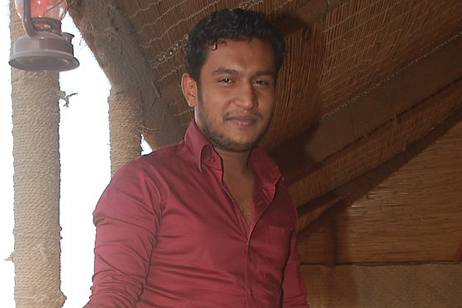 Dubai, April 10: An Indian father has appealed for help to find his son who went missing along with his car on March 25.
Dubai, April 10: An Indian father has appealed for help to find his son who went missing along with his car on March 25.
Abdul Khader, a businessman from Abu Dhabi, says his son Mohammed Thahseer Berkka, 28, has been missing for more than two weeks.
"He is missing with his vehicle and his two mobile phones are switched off. I am worried that he might have been kidnapped," said Mr Khader, who hails from Kerala.
He said his son, who owns two mobile phone shops in Dubai and Abu Dhabi, has been working in the UAE for seven years.
"I am yet to receive information on his whereabouts or the whereabouts of the vehicle he used for travelling. He was driving a Hyundai that he rented from a company," he said.
Mr Khader has filed a missing persons report at Musaffah Police Station and also at the Indian embassy in Abu Dhabi.
The family said they have also checked at hospitals. "He usually carries money in his car while driving because of his business. We fear he may have been kidnapped," said his uncle Abu Mohammed.
"He went to visit one his relatives in Al Ghusais," said Mr Mohammed. "They asked him to stay for food but he got a call and went downstairs for some purpose. After some time, his phone was switched off and he went missing.
"We have no clue what happened to him. He recently set up a mobile phone shop in a partnership in Dubai and was doing well."
He said Mohammed did not have GPS in his car, so they were unable to locate the vehicle. "It looks like a mystery. We are worried about his safety," said the uncle.
The Indian embassy confirmed they received a complaint regarding the missing person and had communicated with local authorities.
"Police are following up the case. We are waiting for some information on this matter, " said Anand Bardhan, counsellor of community affairs at the embassy.





Comments
Add new comment